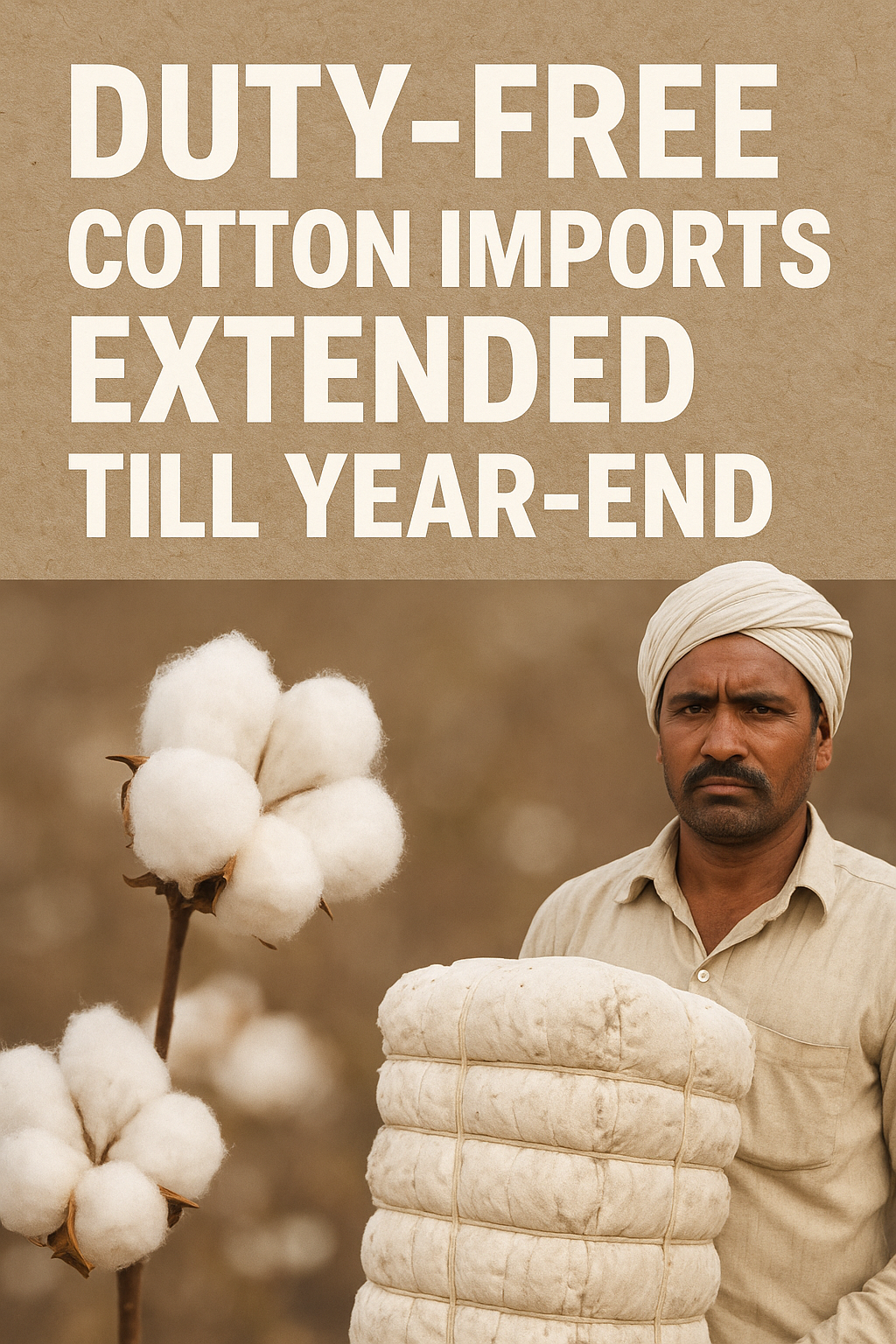
The Indian government has decided to extend the exemption on import duties on cotton until December 31. This move, announced earlier for a limited period between August 19 and September 30, will now continue for the rest of the year. According to the finance ministry, the decision has been taken to provide relief to the domestic textile industry, which has been facing rising costs and stiff global competition, particularly after the United States imposed a 50 percent tariff on Indian textile exports.
India is the world’s second largest producer of cotton, with an annual output of about 25 million bales. Despite this, the country imports significant quantities of the raw fibre from the United States and Australia. This is because domestic prices have often remained higher than international rates, creating a cost disadvantage for Indian manufacturers. The government believes that duty-free imports will help stabilise prices, ease raw material shortages, and protect small and medium-sized enterprises engaged in garment production.
Members of the Apparel Export Promotion Council welcomed the announcement. They argued that the tax holiday was necessary to keep the apparel sector competitive in the face of adverse trade conditions. The council had earlier written to Prime Minister Narendra Modi seeking urgent relief measures, citing the difficult environment created by high domestic cotton prices and the added burden of US tariffs. Industry representatives also expressed hope that the decision would protect jobs and livelihoods in one of India’s largest employment-generating sectors.
However, farmers’ groups have strongly opposed the extension. They argue that the arrival of cheaper imported cotton will hurt them at a time when good rains and favourable conditions are expected to produce a strong harvest. Farmer leaders said that the waiver effectively reduces demand for local cotton, leaving growers vulnerable to falling prices. The Samyukt Kisan Morcha, which had earlier led the nationwide protest against three controversial farm laws, warned that it would launch an agitation if the duty-free window is not rolled back. The group also pointed out that the United States provides heavy subsidies to its own cotton growers, allowing them to sell at artificially low prices.
This conflict highlights the challenge for policymakers who must balance the interests of both farmers and the textile industry. On one side, the government is under pressure to ensure affordable raw materials for apparel exporters, who earn valuable foreign exchange. In 2023-24, India exported textiles and garments worth $3.4 billion, with nearly half the shipments going to the United States and the European Union. On the other side, millions of cotton farmers depend on stable prices for their livelihood, and they fear being undercut by imports at a crucial time.
Officials have said that the situation will be monitored closely and further steps may be taken if needed. For now, the duty-free imports remain a temporary measure. The coming months will reveal whether the government can maintain a delicate balance between farmers’ interests and the survival of India’s textile sector.





















